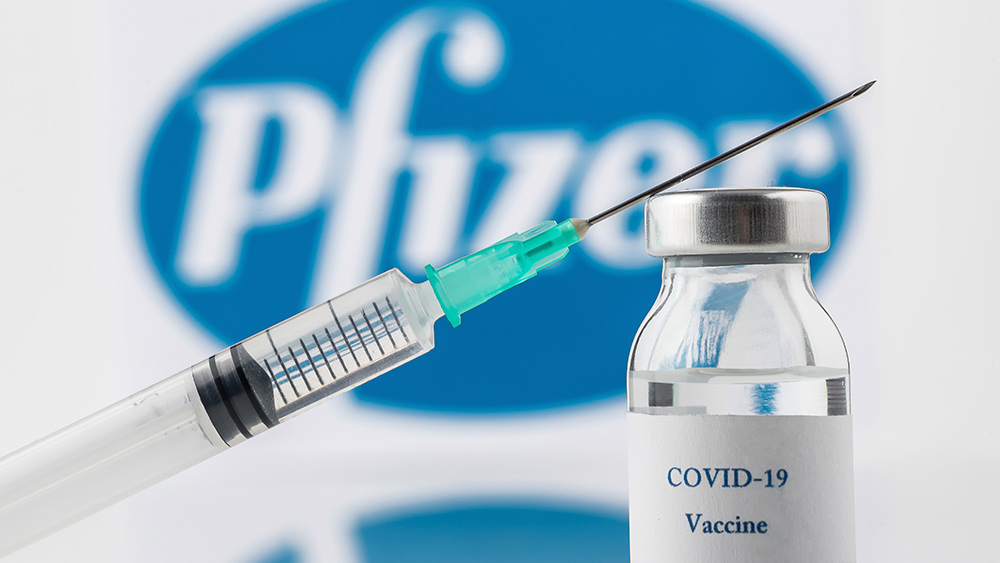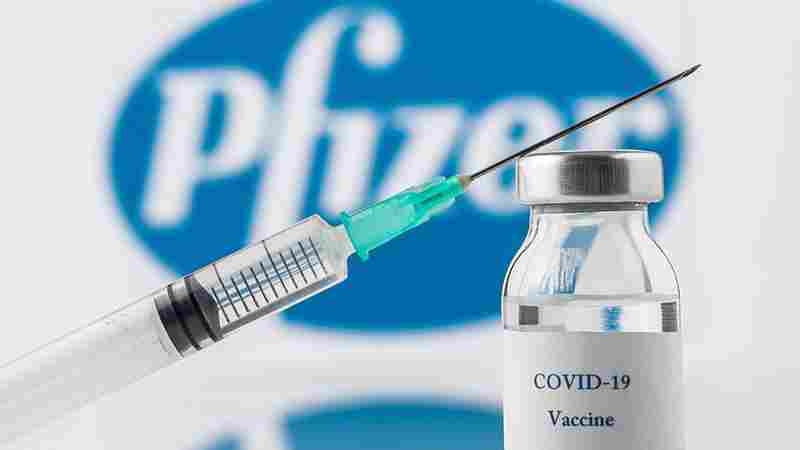
- 2021-04-30
- 0.0 Reitingas
- 731 Peržiūr
- Aptarti
(Paranormal) Israel is now investigating a number of adverse reactions in some of its citizens who got the Pfizer/BioNTech Wuhan coronavirus vaccine.
Authorities in the Middle Eastern country said they identified more than 60 cases of heart lining and heart muscle inflammation in vaccinated Israelis. Israel administered the two-dose mRNA vaccine to a large portion of its population.
(Article by Ramon Tomey republished from NaturalNews.com)
News outlet Channel 12 reported that the Israeli government identified 62 incidents of myocarditis or pericarditis, based on a study by the Israeli Ministry of Health. The condition reportedly developed in one out of 100,000 vaccinated Israelis. Two people died of the adverse reaction, while the rest recovered.
Israeli health officials are now examining whether the incidents are indeed connected to the two-dose vaccine.
The country’s coronavirus czar Nachman Ash confirmed the investigation during an April 25 interview with Israeli station Radio 103FM. He told the radio station: “It looks like the benefit of the vaccine is so great – that even if we do find a connection between some of the cases and the vaccine, it won’t be justified to take any action.”
Ash added that information regarding the cases has been forwarded to Pfizer. The pharmaceutical firm meanwhile confirmed in a statement that it is aware of the myocarditis reports in Israel. However, the company insisted that “there is no evidence … that myocarditis is a risk” associated with the two-dose vaccine.
“We have not observed a higher rate of myocarditis than what would be expected in the general population. A causal link [between heart inflammations and] the vaccine has not been established,” the Pfizer statement said.
Meanwhile, the Israeli Health Ministry has also responded to questions regarding the heart inflammation cases. It said that its study “doesn’t show with certainty” that there is a higher mortality rate or an increased prevalence of either myocarditis or pericarditis with the vaccine.
The reports of cardiac inflammation after vaccination add to the dangers associated with the Pfizer/BioNTech vaccine
Ben-Gurion University of the Negev (BGU) School of Public Health Director Nadav Davidovitch seconded Ash’s sentiments regarding the Pfizer/BioNTech vaccine. He said that even if a correlation between the heart inflammation cases and the vaccine were established, it did not appear to merit suspending the vaccine’s use.
“[In] an interim analysis, it seems the risk of getting sick from COVID-19 is much higher than from the vaccine’s adverse events. [The] risk of pericarditis [or] myocarditis following the vaccine is low and temporary,” Davidovitch remarked. Nevertheless, he acknowledged that “it’s a situation that should be looked into.”
The reports of pericarditis and myocarditis followed a concerning study that the vaccine may ultimately be unable to provide protection against the Wuhan coronavirus. A team of Israeli researchers found that two so-called variants of concern had a higher chance of infecting vaccinated people compared to those who were not.
Researchers from Tel Aviv University (TAU) and Israeli health provider Clalit Health Services examined 800 positive COVID-19 test results for their paper. Half of the results came from vaccinated Israelis, while the other half came from unvaccinated ones. They found that the South African B1351 variant was eight times more prevalent in people who completed two doses of the Pfizer/BioNTech vaccine compared to unvaccinated one – 5.4 percent vis-à-vis 0.7 percent.
The researchers also found that the U.K. B117 variant had a higher prevalence in those who received only one dose of the Pfizer/BioNTech vaccine. But the prevalence of the British strain in those who completed two doses was no different from its South African counterpart. The study authors remarked that the B1351 strain made up about one percent of the COVID-19 cases they scrutinized.
Lead researcher and TAU professor Adi Stern said: “We found a disproportionately higher rate of the South African [B1351] variant among people vaccinated with a second dose, compared to the unvaccinated group. Based on patterns in the general population, we would have expected just one case of the South African variant – but we saw eight.” Stern commented that her team’s study suggested that the B1351 strain could bypass vaccine-induced immunity “to some extent.”
Visit VaccineDamage.news to read more about the different risks associated with the Pfizer/BioNTech Wuhan coronavirus vaccine.
Sources include:
Norite sužinoti daugiau, apie skiepus, jų daroma žalą? sekite mus planet-today.com
Pasaulio naujienas kitaip... skaitykite Paranormal Telegram, FB ir X(twitter) kanale...kadangi jau perskaitėte šį straipsnį iki pabaigos, prašome Jus prisidėti prie šio darbo. Skaitykite „Paranormal.lt“ ir toliau, skirdami kad ir nedidelę paramos sumą. Paremti galite Paypal arba SMS. Kaip tai padaryti? Iš anksto dėkojame už paramą! Nepamirškite pasidalinti patikusiais tekstais su savo draugais ir pažįstamais.
Turite savo nuomone, tapk autoriumi, prisijunk ir rašykite bloge. Dalinkitės receptais, sveikatos patarimais, nutikimais, susidūrėte su nekasdieniškais reiškiniais. Galite išversti iš užsienio kalbos, talpinkite su nuoroda. Laukiame Jūsų straipsnių, naujienų, apžvalgų ar istorijų!
Susijusios naujienos
Būkite pirmi, kurie pasidalins savo nuomonėmis su kitais.
Skaityti daugiau
Skaityti daugiau
Skaityti daugiau
Skaityti daugiau
Skaityti daugiau
Skaityti daugiau

